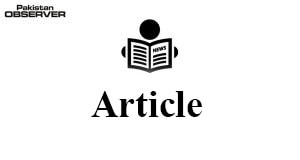Taking advantage of a loophole
OIL Marketing Companies (OMCs) are typically required to pay a 10% customs duty to the state whenever they import petrol.
However, more than a dozen OMCs in the country have reportedly taken advantage of a loophole in the regulation and have avoided paying the tax by buying petrol from China under the China-Pakistan Free Trade Agreement (CPFTA).
The petroleum industry’s body Oil Companies Advisory Council (OCAC) has reportedly informed Energy Ministry that 15 OMCs procured approximately 2.42 billion litres of petrol from China in 2020 and 2021.
If it were any other country, the OMCs would have paid 10% customs duty on these purchases. But under a special agreement, which seems to have taken the policymakers by surprise, the petroleum companies avoided paying taxes.
The benefit of free trade did not reach the consumers in the form of lower prices. Instead, the OMCs have reportedly pocketed a profit of more than Rs 20 billion.
The loophole was first revealed by media outlets earlier this month. The news sprung the Petroleum Division into action which, on January 14, directed OMCs to furnish details about petrol imports from China within 10 days.
The OMCs replied by giving the port of origin, name of the vessels that carried the fuel, the total quantity of petrol purchased, and the port of destination.
Additionally, information about customs duties and taxes paid on these imports was also provided to the Petroleum Division.
It remains a mystery how petrol ended up being included in the CPFTA since the commodity wasn’t featured in the initial agreement that was finalized in 2006 and then revised ten years later.
But when the free trade agreement got updated in December 2019, the tariff on imports of petrol was removed. Consequently, from the start of 2020, petrol imports from China became tax-free.
The OMCs, therefore, did not break any laws, since the tax-free imports were in accordance with the CPFTA.
Rather, all of Pakistan’s major OMCs capitalized on this anomaly, except Cnergyico (formerly Byco Petroleum) which decided not to take this kind of advantage.
Under the current framework, the petroleum products imports from China are tax-free and could, in some instances, entail an ACD (additional customs duty) of up to just 0.5%.
Shell Pakistan seems to have been the biggest beneficiary of tax-free imports. By buying 1.165 billion litres of petrol, the company alone accounted for nearly half of the total petrol imports from China that took place in the last two years.
Shell Pakistan didn’t pay any customs duty and deposited approximately Rs1.1 billion in the national kitty as ACD. Next in line was Gas & Oil Pakistan which imported 474 million litres of petrol followed by Total-Parco which imported around 288million litres and Attock Petroleum Limited which imported 157 million litres.
The state-owned Pakistan State Oil (PSO) also got 68 million litres of fuel from the neighbouring country along with a customs duty waiver.
Interestingly, Cnergyico, which is one of the country’s biggest oil marketing companies that owns a network of 440 petrol pumps, did not participate in this activity and refrained from importing tax-free refined products from China.
In addition to being an oil marketer, the company is also the owner of Pakistan’s largest oil refining facility with a nameplate capacity of 156,000 barrels per day.
Total-Parco, Attock Petroleum and PSO also own oil refineries either directly or indirectly through subsidiaries.
It is pertinent to mention here that Pakistan has signed free trade agreements with China as well as with Malaysia. China is the world’s biggest oil importer while Malaysia is an oil exporting country. Malaysia also counts China as one of its biggest oil customers. However, Pakistan’s free trade agreement with Malaysia does not include petroleum products.










